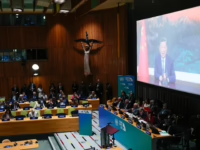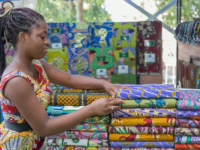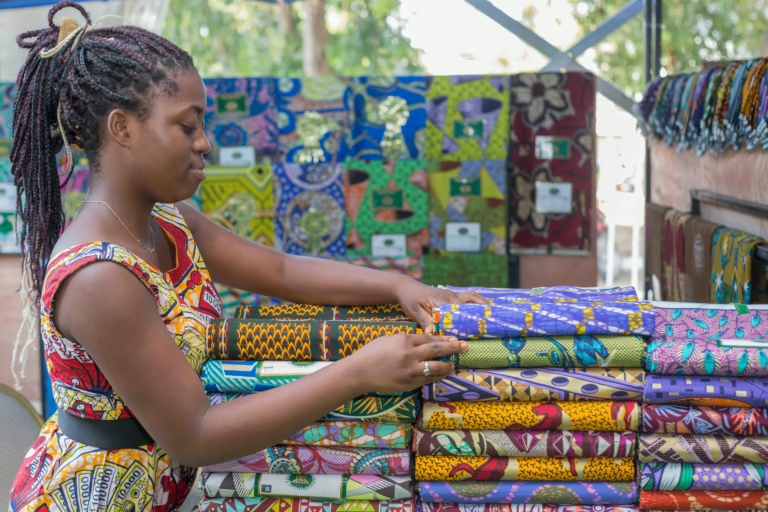Earlier this year, Etsy’s decision to discontinue support for African sellers abruptly severed thousands of entrepreneurs from international marketplaces.
This move was not driven by a lack of consumer interest-buyers in Europe and the U.S. had shown strong enthusiasm for African artisanal products, ranging from beaded jewelry to vibrant wax prints-but rather by the absence of adequate local payment systems.
Etsy’s push for sellers to adopt its proprietary payment platform, Etsy Pay, hit a roadblock as the system failed to accommodate the majority of African countries.
For many observers, this echoed a familiar pattern: a global platform expanding with a uniform strategy, only to retract when faced with the complexities of emerging markets. Yet, for Omoniyi Kolade, CEO of the pan-African fintech company SeerBit, this challenge highlights both the shortcomings and the vast potential within the continent.
“It’s crucial to understand why Etsy transitioned to Etsy Pay in the first place,” Kolade explained in an interview with Technext. “They sought greater control, a streamlined experience for both buyers and sellers, and a more transparent fee structure-benefits that PayPal alone couldn’t deliver.”

“From a global product standpoint, this approach is logical. However, Africa represents a unique opportunity: if Etsy Pay aims to be the future of commerce on the platform, it should demonstrate its effectiveness in a market as diverse and challenging as Africa.”
Kolade describes Africa as a complex payments ecosystem waiting to be unified. With over 40 different currencies, a patchwork of payment networks, and a surge in digital wallets, the continent serves as the ultimate proving ground for any payment platform striving for simplicity and cohesion.
“Crack the payments code in Africa,” Kolade asserts, “and you’ve essentially created a blueprint that can be replicated worldwide.”
While Etsy’s exit closed doors for some African sellers, it also spotlighted the immense untapped potential in the region.
Africa’s digital economy is forecasted to reach $180 billion by 2026. Creators across the continent are crafting products that resonate globally: Ethiopian coffee captivating cafés in New York, Senegalese textiles influencing fashion weeks in Milan, and South African skincare products gaining shelf space in London.
Kolade emphasizes, “‘Made in Africa’ has evolved beyond a mere label-it’s a cultural wave. Global demand for African goods is surging like never before.”
For platforms like Etsy, overlooking this momentum is more than a missed opportunity; it risks alienating a loyal and engaged consumer base.
“African buyers are deeply committed and show remarkable brand loyalty,” Kolade noted. “Once a platform earns their trust, competitors find it challenging to sway them. By prioritizing Africa now, Etsy wouldn’t just be fulfilling an inclusion checklist; it would be securing a strategic foothold in a rapidly expanding and influential market.”
Fintech: The Essential Connector
How can this potential be fully realized?
Kolade believes fintech holds the key. Companies like SeerBit are designed to bridge the divide between Africa’s fragmented payment landscape and the global e-commerce ecosystem.
“At SeerBit, our mission is to close this gap,” he shared. “We empower entrepreneurs to effortlessly sell beyond borders.
Whether it involves managing diverse payment options, multiple currencies, or navigating complex regulations, the principle is straightforward: a designer in Lagos or a craftsperson in Kampala should be able to sell to a buyer in Berlin without payment concerns. – Omoniyi Kolade, CEO, SeerBit
Kolade argues that smooth payment processes foster trust, which in turn strengthens business relationships and allows creators to concentrate on growth and innovation. “Fintech acts as the vital link connecting Africa’s rich creativity with the global appetite for its products.”

Nevertheless, Africa’s market is notoriously complex. Diverse regulatory environments have long posed challenges for international platforms. What is permissible payment practice in one nation may be restricted in another.
Kolade acknowledges these hurdles but views them as strategic challenges rather than insurmountable barriers.
“Our growth strategy hinges on forging the right partnerships. In certain countries, this means collaborating with banks to leverage their licenses and infrastructure, avoiding redundant efforts. In others, we operate independently, backed by our own licenses and customer demand.”
SeerBit transforms a fragmented regulatory environment into a web of opportunities by layering compliance solutions atop customer needs and strategic alliances.
“Facilitating cross-border commerce is central to our approach,” Kolade explained. “Our technology connects supply and demand across markets, enabling businesses to expand despite regulatory complexities.”
However, Kolade stresses that localization alone won’t suffice. The future lies in interoperability-ensuring African payment systems can integrate with global standards while maintaining local adaptability.
“True innovation comes from creating inclusive, interoperable systems at scale,” he said. “Emerging markets cannot be afterthoughts as global platforms push for standardization.”
SeerBit is developing API-driven infrastructure to make integrating with African payment systems as straightforward as transacting in major financial hubs like New York or London. “Whether it’s card payments, mobile money, bank transfers, or emerging methods like QR codes,” Kolade noted, “our goal is seamlessness.”
Beyond banks and merchants, the fintech also champions cross-border collaboration with regulators, telecom companies, and global platforms. With innovations such as embedded finance, Kolade envisions a future where African sellers remain connected to global networks without sacrificing their local strengths.

Etsy’s Exit: A Lost Chance or a New Beginning?
For African artisans, Etsy’s withdrawal is a stark reminder that access to international markets often hinges on infrastructure beyond their control. Yet, for fintech innovators like SeerBit, it represents a call to action.
This moment offers an opportunity to demonstrate that African markets are not insurmountable challenges but vital frontiers that demand attention.
Kolade envisions a future built on partnership rather than exclusion. “The encouraging part is Etsy doesn’t have to navigate this alone,” he said. “Africa is home to some of the world’s most advanced fintech firms-companies like ours that power mobile money, multi-currency settlements, and cross-border transactions at scale.”
“By leveraging these existing partnerships, Etsy Pay could tap into trusted, proven infrastructure instead of reinventing the wheel.”
























0 Comments